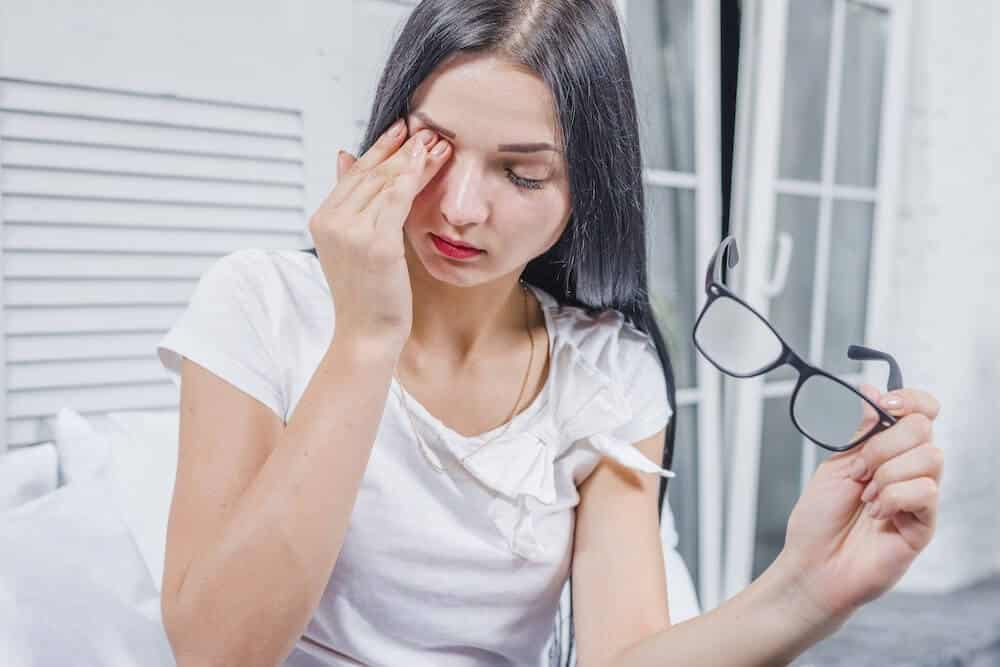Eye twitching is pretty common. A twitch usually occurs in the upper lid, but it can occur in both the upper and lower lids. For most people, eye twitches are harmless and will just come and go, but for others, eye twitches can last for weeks or even months and that’s when an eye twitch can become extremely irritating. Twitches are painless and harmless but they can start to bother you.
The Most Common Reasons For Eye Twitches
Here are the six most commong reasons that cause eye twitches:
1. Tiredness

A lack of sleep can trigger a twitching eyelid so make sure you rest up and get enough sleep.
2. Stress
Stress is probably the most common reason eyes twitch and it can cause our bodies to act in very strange ways.
Twitching eye can sometimes be one of the signs that you’re under stress, especially when it’s related to vision problems such as eye strain.
Want To Find Out If You're Suitable?
If you're wondering whether laser eye treatment is the right choice for you, there are some key things to consider...
3. Eye Strain
Even very minor eye strain can make your eyes work too hard and trigger eyelid twitching so It’s important to have regular eye examinations to get your vision checked and if you wear glasses or contacts, keep your prescription updated.

4. Computer eye strain
We are all guilty of spending too long on our smartphones and tablets these days but overuse on devices like these is another common cause of eyelid twitching. If you find yourself with computer eye strain, follow the 20-20-20 rule. This means that every 20 minutes, look away from the screen and allow your eyes to focus on a distant object, at least 20 feet away, for 20 seconds or longer – this helps reduce eye muscle fatigue.
5. Dry eyes
Dry eyes are very common, especially when you reach the age of 50+. Dry eyes are also common with those who spend the majority of the day staring at a computer and for those who wear contact lenses.
If you have a twitching eyelid and your eyes feel gritty or dry, book in for an eye examination. Restoring moisture to the surface of your eye may stop the spasm and decrease the risk of twitching in the future.
6. Too much alcohol/caffeine

Too much alcohol or caffeine can also trigger eye twitches so try to cut back on these if the symptoms persist.
How To Treat An Eye Twitch?
In most cases, a minor eyelid twitch doesn’t require treatment and will go away on its own.
In its most serious, yet uncommon form, eye twitching can become chronic and cause persistent winking and squinting. If it progresses to the point where you have difficulty keeping your eyes open, it can cause severe vision problems.
If these symptoms persist, then go to the eye doctor for an evaluation. If your eyelid spasms are happening more frequently over time, keep a journal and note when they occur. Note your intake of caffeine, tobacco, and alcohol, as well as your level of stress and how much sleep you’ve been getting in the periods leading up to and during the eyelid twitching.
You can also try a warm compress to relax the muscles around the eye. One other option can be to try eye yoga to reduce stress and relax the eyes.
So don’t get stressed about a little twitch, but if symptoms persist and are bothering you, see your doctor to rule out more serious eye and neurological problems.

